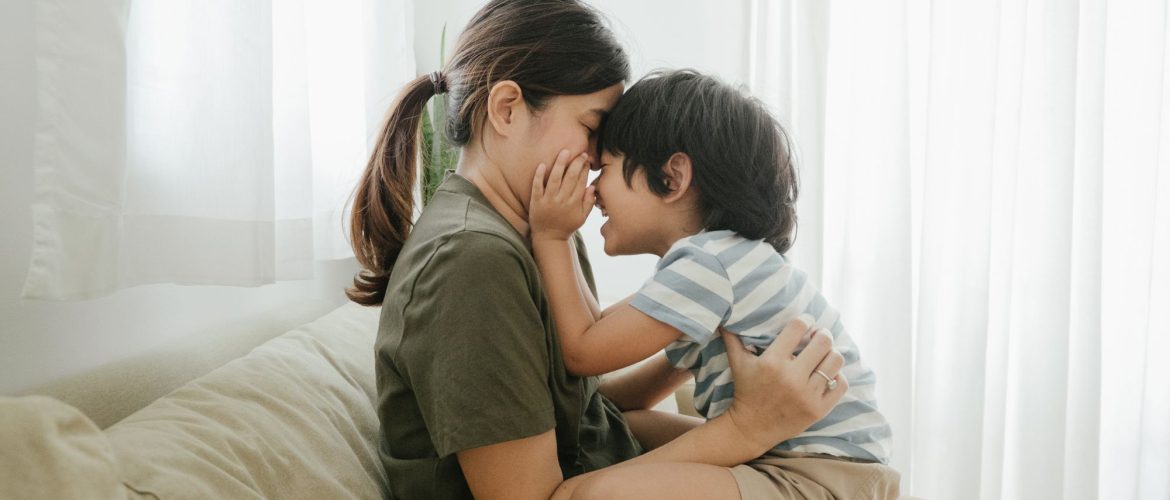By Dr Sumathi
I cannot be who you want me to be, because you and I think me to be two very different people.
– C.J. Peterson
As parents, there’s no denying we want only the very best for our children. In order to ensure they get, as well as become that, we do our very best to make that happen. Our best intentions then turn into a burden, creating pressure, anxiety and fear just to name a few things.
Where does this intention stem from? What does it mean for us and for our children? It stems from our childhood. A transgenerational blueprint has been handed down to us from our parents. A blueprint that unambiguously states we have to be good parents and nothing short of that and our duty is to make our children happy and successful. We buy into this belief leaving the poor child no choice but to be happy and successful as dictated by us (the parents), and in due course, relatives, teachers and society.
We fail to realise that our quest to be a ‘good’ parent is fueled by fear – the fear of not fitting in, the fear of not being good enough. The ultimate illusion which has been passed down is we have to be someone in order to be worthy – we have to do more, accomplish more and be perfect, nothing less. For as long as we fail to see through this illusion, we are in danger of mass production, fitting into molds, cloning whatever that has been dictated by societal standards.
When we fail to question what is, what always has been – i.e. children are to be seen and not heard, don’t talk back, don’t question – when we fall prey to duality where everything is labelled and judged – good or bad, right or wrong, – when we fail to see things as they really are, we will never awaken. We will continue to build on our expectations of perfection in our children – oppressing their sense of self with criticism and control because we fear ‘bad’ and ‘wrong’. Where is the space for the child to experience, know and trust the ‘self’? Duality is an illusion. There is no good or bad, right or wrong – everything is relative when examined closely. The rain that wets the clothes hung out to dry, feeds and nourishes the plants in the same garden.
By uncompromisingly imposing our standards and expectations on our children, we leave a lasting and painful struggle that carries into adulthood – filling them with guilt and shame while they grapple with their sense of self as they have been conditioned to be whoever they are expected to be and not their true selves. Do you recognise this struggle within yourself or someone dear to you? Have you ever wrestled with such kind of feelings and the crushing guilt of not having met your parent’s expectations?
As parents, we are in a position of extreme power by default. Children are completely and helplessly dependent on us. When we parent ‘unconsciously’, blissfully unaware of our conditioning, we do so much damage.
Expectations
Some of the common expectations (just to name a few) we may have as parents include:
“Study hard and get good results.” I have yet to meet a parent who feels otherwise. “I expect you to get straight ‘A’s in the coming exam. If you don’t, you will not get (insert object of interest, holiday etc.).” There’s even a veiled threat in there. What about the child who has been struggling to pass all this while and has now managed to come up with ‘B’s – that’s an amazing progress. However, in an attempt to encourage them, we say – “Well done, I’m sure the next time you’ll get ‘A’s.” – Anyone else hear ‘Not Enough’?
“Behave yourself. Don’t talk back.” I’m sure all of us have said it at one time or another. I’ve said it enough times myself. Children learn this lesson well; they stop questioning and stop telling and when they are in trouble they will silently ‘endure’ their suffering because we ‘expect’ them to be quiet. How many pedophiles and abusers have gotten away scot free because first, we taught our children to behave and be quiet and second, because we don’t ‘listen’ to them?
“I want my child to become a (insert profession of choice).” Often a child is pushed into following the path of their parent or at least the choice of the parent. “I never got to study medicine and become a doctor. You have to become a doctor.” All’s well if that’s the child’s ambition – but what if the child has no interest in the field and wants to become a musician or an interior designer?
To be fair to us parents – we come from a place of love and affection for our children. However, we fail to realise that our communication with our children is not based on love and respect. Instead of gently guiding them into discovering what’s best for them – we tend to impose on them in the guise of advice and assistance. When our expectations are unreasonable, we set our children up for feeling like a failure.
We often convey ‘outcome expectations’ to our children – like in the first example – I’m sure you’ll be the top child in your class, or the best athlete at the sports meet. Setting outcome expectations sends them the message that we value results over everything else, including the child. It sends the message that we only love you if you live up to our expectations. Children become nervous before a test, recital, sporting event because they’re afraid of the outcome – specifically failure. Anxiety leads to poor performance or not trying at all, to avoid failing. As a consequence, learning and progress cannot take place. Clearly outcome expectations hinder progress and a growth mindset.
Can’t I expect my child to get good grades, do well in sports and other activities, or behave well?” “ NO WAY! What kind of parenting is this?”
Well, allow me to share with you what I’ve learnt. Realistic expectations aren’t about settling, it’s about truly understanding and respecting our child for who they are and helping them grow in their own unique way.

The Quest
In my quest to deepen my yoga practice and understand the yogic philosophies and way of life better, I often find that the guiding principles founded in the eight limbs of yoga serve as a potent reminder of how this interaction can be set up for better success.
Start with mindful awareness
It helps ensure we are truly parenting consciously from a place of love and respect. Notice and understand our children’s character and nature and accept them for who they are. Be aware of the expectations we impose on our children and when we do it. “Why is winning that competition so important?”
Practise Ahimsa – nonviolence, compassion
Remember that not only beating and yelling but even the silent treatment and rejection are controlling behaviours on our part that will increase distance and disconnect us from our children.
Exercise Satya – truthfulness
When we answer the above questions with absolute honesty to ourselves – we often learn that the ‘issue’ usually has nothing to with the child, but has a lot to do with ourselves.
Observe Asteya – non-stealing
Allow children to exercise their childhood. Hold space for them to play, explore, experience and discover and connect to their ‘self’ – and infinite source of wisdom and love.
Practise Aparigaraha – letting go
We need to let go of our expectations to be perfect parents and for our offspring to be ‘perfect children’. If we don’t, our conditioning and limiting beliefs will hold us back from being our authentic selves.
Heed Brahmacharya – moderation
Instead of outcome expectations, focus on goals. By focusing on goals and progress i.e. the process, children are more likely to perform better and achieve the outcome anyway. Discuss with them the necessary efforts to reach their goals. Support, acknowledge and encourage them every time you witness them making efforts – acknowledge a positive attitude, perseverance, patience, focus, or discipline.
Perform Svadhyaya – self-study
Turn inwards and understand ourselves in order to liberate ourselves from that conditioning that no longer serves us. Our children will not do as we say, but they never fail to do as we do. When we self-study, we encourage our children to do the same too.
Observe Tapas – discipline
This is a difficult part. Like I said before, the blueprint is transgenerational – undoubtedly then there’s a whole lot of undoing to work on. That aside, interaction with children is extremely rewarding, but it can also be taxing when they try to find their place in the world. It’s not always easy to remain calm, centered and loving in our interactions as much as we would all love. Remember to have compassion for ourselves. Every change that we make needs to be constant and consistent in order for it to come to fruition – and for that, self-discipline and self-mastery are vital.
Until and unless we are ready to let go of our belief systems of what is good or bad, right or wrong, we cannot awaken – to see things as they are. We will only continue to allow fear to perpetuate our expectations of how to be and inflict it on our younger generations.

